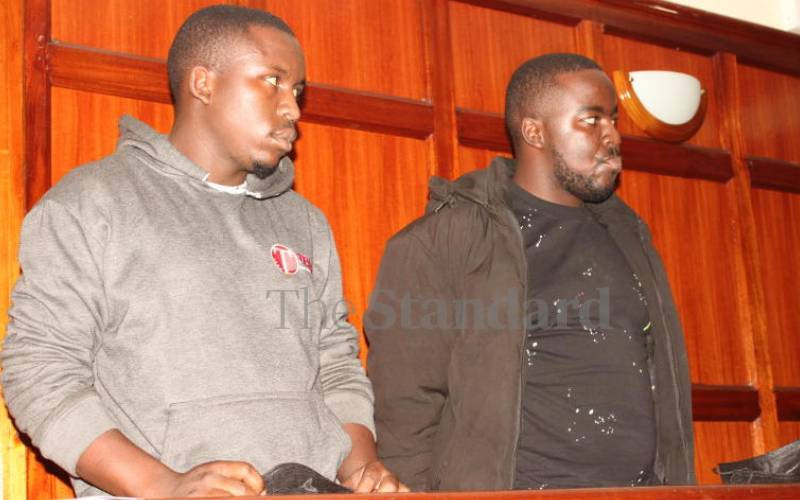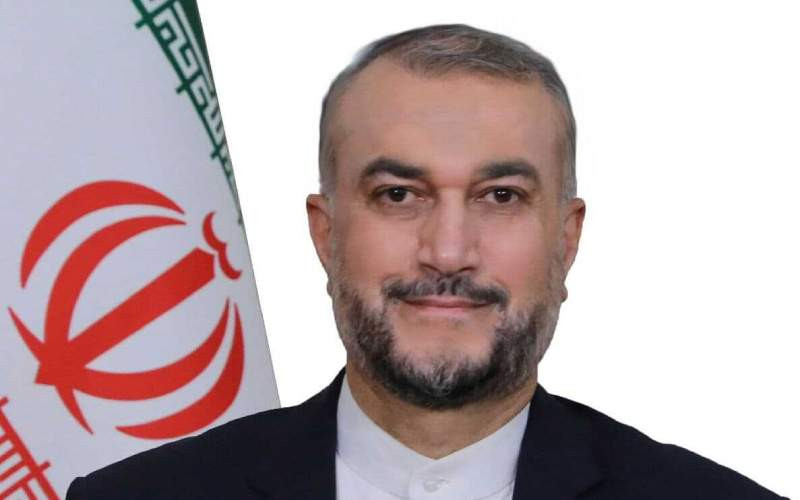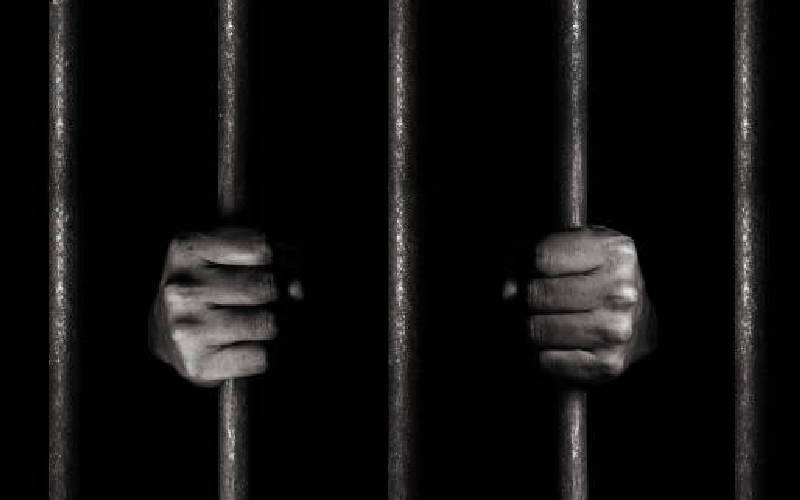Alamin Hafidh is relieved that the lockdown of Mombasa Old Town has been lifted.
The restrictions nearly marred the methadone issuance programme, causing confusion and panic among hundreds of addicts in Mombasa County.
Recovering drug addicts are placed on methadone to wean them off the craving for narcotics.
While on his steady path to fully recovery, Hafidh, a resident, says he panicked when the Government enforced the restriction on Old Town 21 days ago, as access to his routine doses of methadone under the Medically Assisted Therapy (MAT) became uncertain.
Elsewhere in Kwale, drug addicts have reportedly been beaten and some seriously injured as they turned to crime, following the economic downturn that was brought about by the Covid-19 restrictions. The addicts have had to do odd jobs or at times engage in crime to make ends meet and access narcotics.
Hafidh, 45, says he was worried for days as police flooded his home area and made it extremely difficult to access the Reachout Centre Trust within Old Town where he gets counselling services and collects his doses of methadone.
He says the doses have stabilised his condition and made him independent of heroin, which once disrupted his job as a conductor of a local bus company and later as assistant manager at an ice cream firm.
“I commend the efforts of the Reachout Centre Trust, which addressed this challenge and ensured we accessed rehabilitation services even during the lockdown. The lack of access, which lasted some days, was a big scare to our rehabilitation. We can now meet the doctors and get our methadone doses,” says Hafidh.
Special passes
Mwamburi Nguku, another recovering addict from Kisauni in Mombasa, says it was impossible to access the methadone collection point in Old Town where he also serves as a peer educator until they were issued with passes.
“Covid-19 almost marred our treatment as drug addicts. At first it was not easy to access our centres and transport has been a challenge too. But we are grateful that we have been recognised and issued with masks,” he says.
Hassan Omar, a healthcare worker and paralegal at Reachout Centre Trust, concurs that the passes have salvaged the situation in the Old Town and ensured continuity of the rehabilitation programme.
“But we have heard several reports of drug addicts beaten up for engaging in petty crime after losing the opportunity for casual jobs. They have had no access to justice because of the Covid-19 situation,” says Omar.
It is estimated that Mombasa County has 5,000 heroin addicts currently. Methadone reduces the withdrawal symptoms in people addicted to heroin or other drugs.
Taib Abdulrahman Basheeib, Director of Reachout Centre Trust, says he worked closely with the office of county commissioner and the county government to ensure drug addicts get recognition and are assisted to get treatment in Old Town.
Stay informed. Subscribe to our newsletter
“Our swift action ensured the recovering drug addicts continue with rehabilitation. They observe social distancing and have so far been issued with masks. We have distributed 5,000 masks, 3,000 of which came from the office of the county commissioner,” says Basheeib.
He says the Old Town has about 200 addicts under rehabilitation.
Reachout Centre Trust runs satellite centres in Kisauni, Miritini and Likoni in Mombasa as well as Kwale and Taita Taveta counties. It has engaged in the rehabilitation of youth hooked to heroin and other narcotic substances since 2003 and has earned recognition from the United Nations Office on Drugs and Crime (UNODC).
County Public Health Chief Officer Aisha Abubakar says the county government and its partners have ensured addicts continue to get counselling services and methadone during the Covid-19 period.
“We have also provided masks and sanitisers to drug addicts under rehabilitation. We have sensitised them on social distancing and hand washing also,” says Abubakar.
In Kwale County, Teens Watch, which rehabilitates drugs addicts at Ukunda showground, says there has been a sharp rise in conflicts between the community and their clients since the lockdown.
“The recovering drug addicts have been beaten and at least 12 of them seriously injured after being accused of stealing. This has become a major challenge as we have been forced to cater for their treatment and feed many of them,” says Teens Watch Director Cosmas Maina.
He says the number of addicts coming for the daily feeding programme has risen from 120 to 250, stretching the resources, as many have lost their casual jobs.
“Some of these youth can work and we are therefore appealing to the county emergency response committee on Covid-19 to consider recruiting them into the Kazi Mtaani programme to reduce the conflict,” Maina says.
He appeals to local authorities to transfer the idle Ganja La Simba methadone centre to Mkwakwani Dispensary in Ukunda town to serve the 425 registered addicts.
Maina says since the methadone programme was introduced about two years ago, Kombani with 735 youth has registered a huge success after more than 15 addicts fully recovered and established families. Kwale has 1,200 injecting heroin users and about 800 heroin smokers.
In April, UNODC donated essential commodities to three methadone clinics in Mombasa, Kilifi and Kwale counties to address the immediate Covid-19 prevention needs of their health care workers and clients. Frequently stretched beyond capacity given the demand for methadone treatment, the MAT clinics at Kisauni in Mombasa, Kombani in Kwale and Malindi in Kilifi provide services to an estimated 2,800 clients.
UNODC also provided 5,000 medical examination gloves, eight automatic sanitiser dispensers, 850 litres of hand sanitiser, 50 bottles of hand washing gel, 20 packs of washing powder soap and a consignment of N95 masks.
“People who use and inject drugs are especially vulnerable to Covid-19 due to their underlying medical conditions like HIV and Hepatitis C, further compounded by stigma and social marginalisation,” the head of UNODC’s Health and Social Development Pillar at the regional office for Eastern Africa, Fayzal Sulliman, said in a statement.
“UNODC is pleased to provide this support to meet the immediate needs of these clinics that are providing ongoing services to a vulnerable population in circumstances exacerbated by the Covid-19 pandemic.”
Dr Sulliman said continued access to healthcare during a pandemic, including services for people who use drugs and treatment of drug use disorders, was key not only to protect the health of populations but also to ensure security and stability in the country.
 The Standard Group Plc is a
multi-media organization with investments in media platforms spanning newspaper
print operations, television, radio broadcasting, digital and online services. The
Standard Group is recognized as a leading multi-media house in Kenya with a key
influence in matters of national and international interest.
The Standard Group Plc is a
multi-media organization with investments in media platforms spanning newspaper
print operations, television, radio broadcasting, digital and online services. The
Standard Group is recognized as a leading multi-media house in Kenya with a key
influence in matters of national and international interest.
 The Standard Group Plc is a
multi-media organization with investments in media platforms spanning newspaper
print operations, television, radio broadcasting, digital and online services. The
Standard Group is recognized as a leading multi-media house in Kenya with a key
influence in matters of national and international interest.
The Standard Group Plc is a
multi-media organization with investments in media platforms spanning newspaper
print operations, television, radio broadcasting, digital and online services. The
Standard Group is recognized as a leading multi-media house in Kenya with a key
influence in matters of national and international interest.








